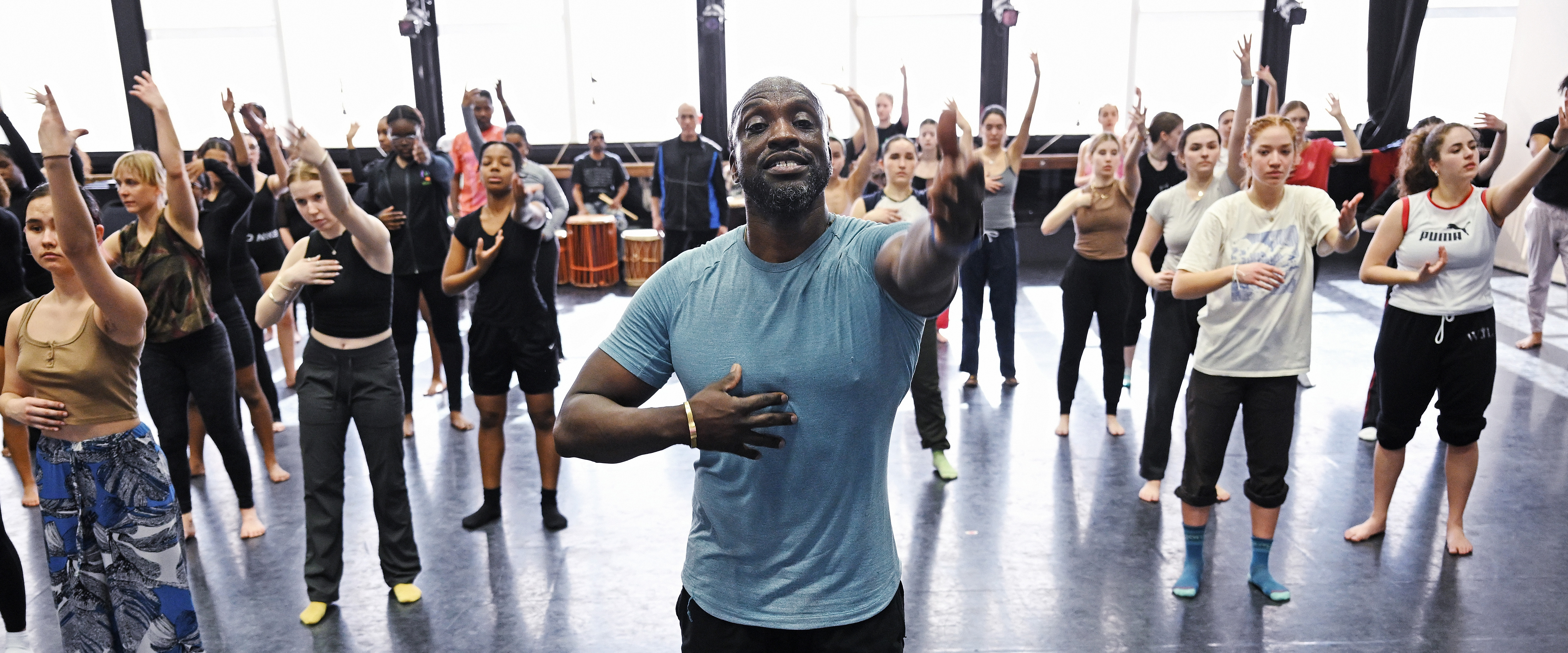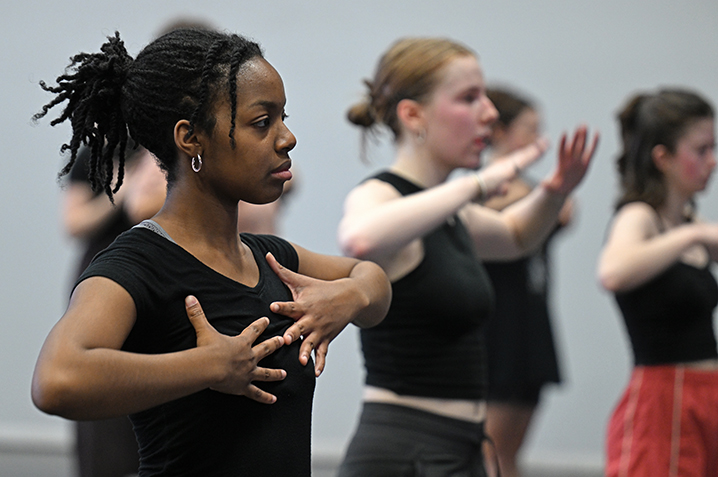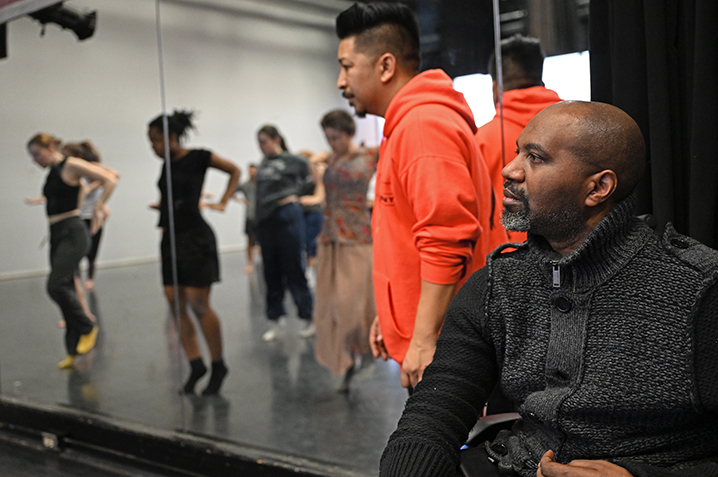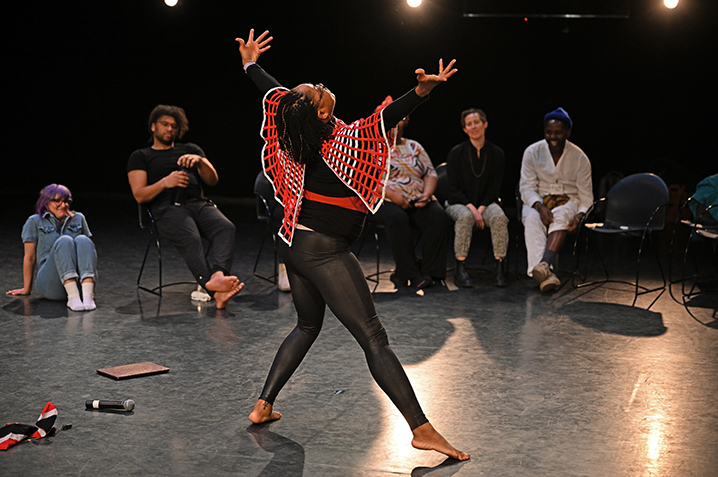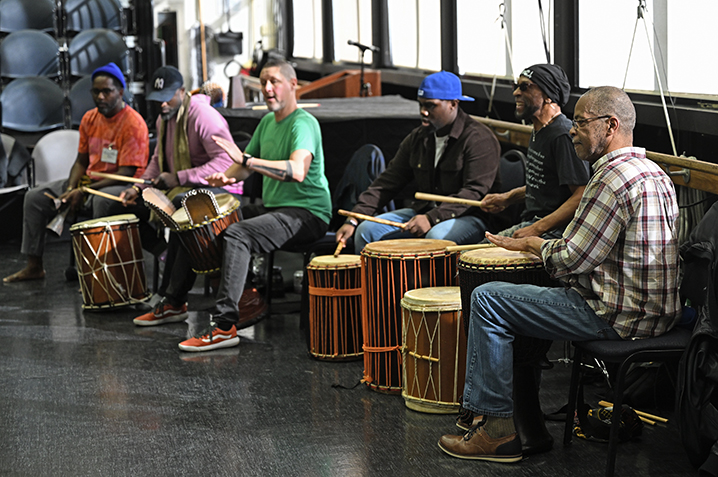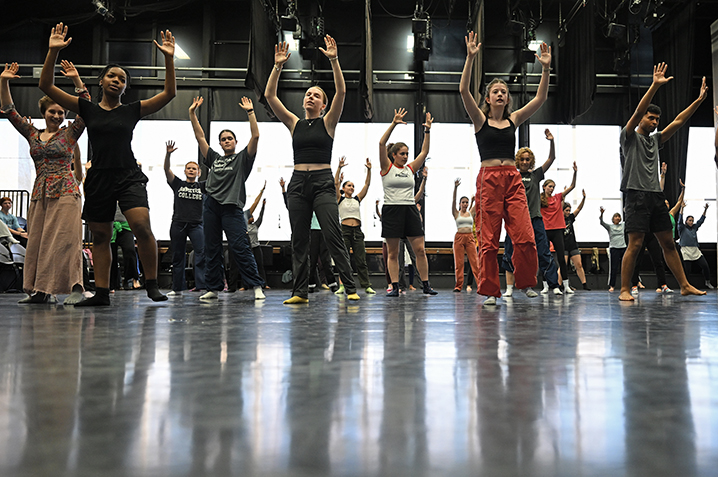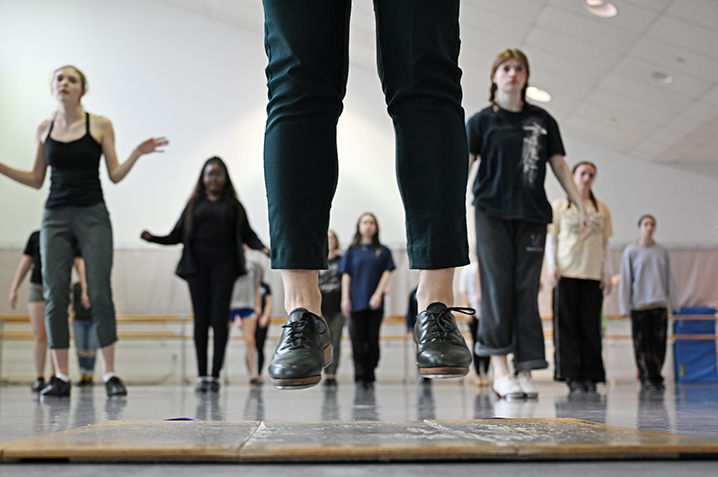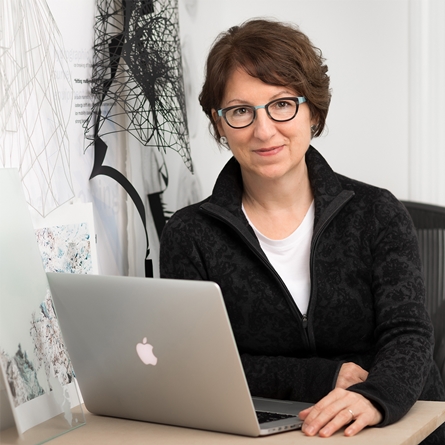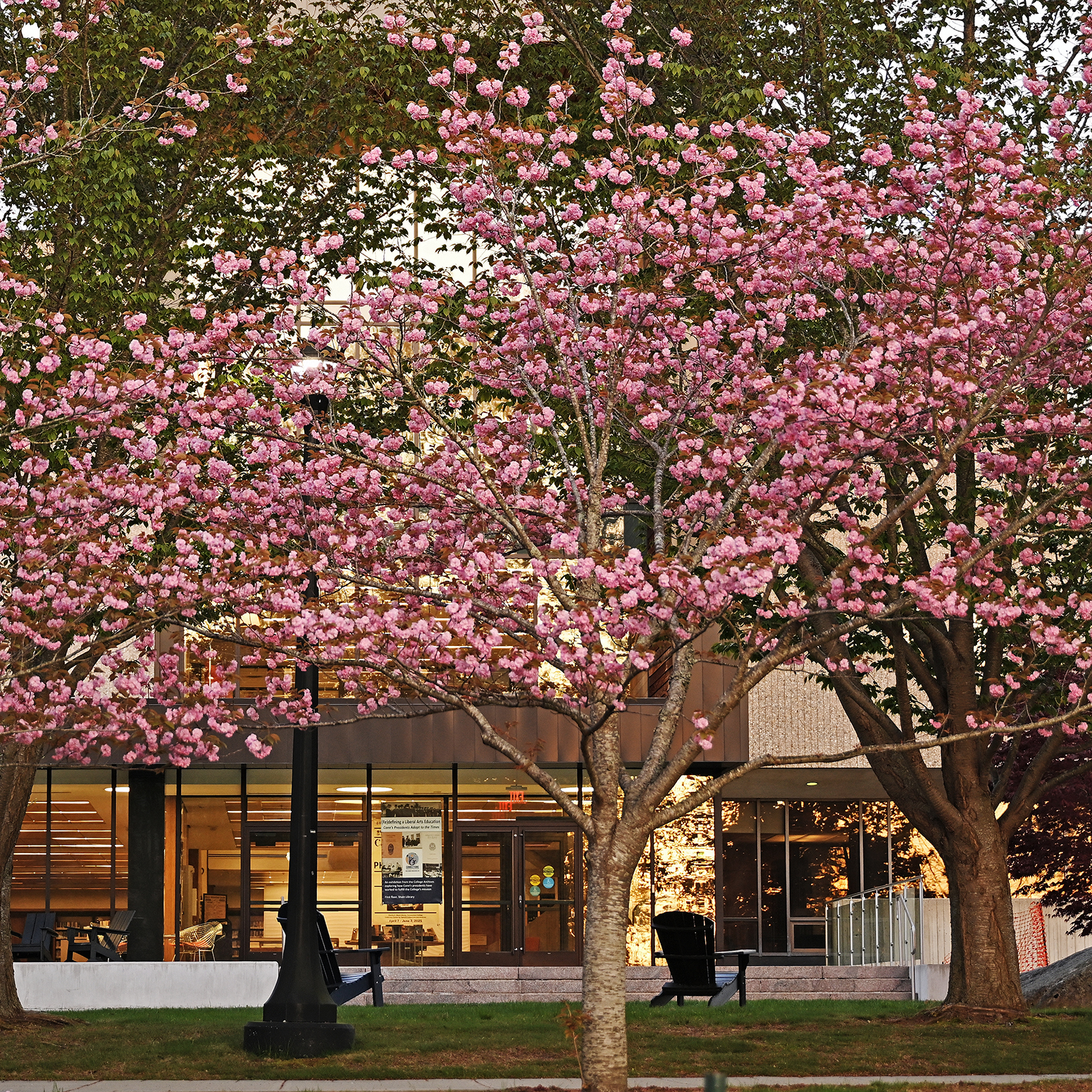
Exploring dance’s African roots
‘Igniting Emancipatory Possibilities through African Diaspora Dance’ summit brings experts and new perspective to campus.
Dance enthusiasts, artists, scholars, students and practitioners gathered on the Connecticut College campus for the groundbreaking “Igniting Emancipatory Possibilities through African Diaspora Dance” summit Feb. 8-10.
Boasting workshops, presentations and a keynote performance from legendary choreographer Ronald K. Brown’s dance group EVIDENCE, the event drew more than 100 participants to celebrate and explore the richness and diversity of African diaspora dance, delve into its historical and cultural significance, and create a community particularly to envision and embody emancipatory possibilities for the future of African diaspora dance in predominantly white contexts.
“A conference like this is so exciting,” said participant Jocelyn Lewis ’24, an English and dance double major from Scarsdale, New York. “We got to bring all these artists and scholars from the dance world to our campus. We get to see what they’re doing with dance in the outside world and we’ll be able to apply what we’re learning now to the work we’ll do on a professional level.”
Summit co-organizer and Dance Professor Rachel Boggia told New London’s The Day it was important to get people together to discuss what it means to teach this form of knowledge in a predominantly white space.
“This is the future of dance in higher education—focusing on the decolonization of dance education,” she said.
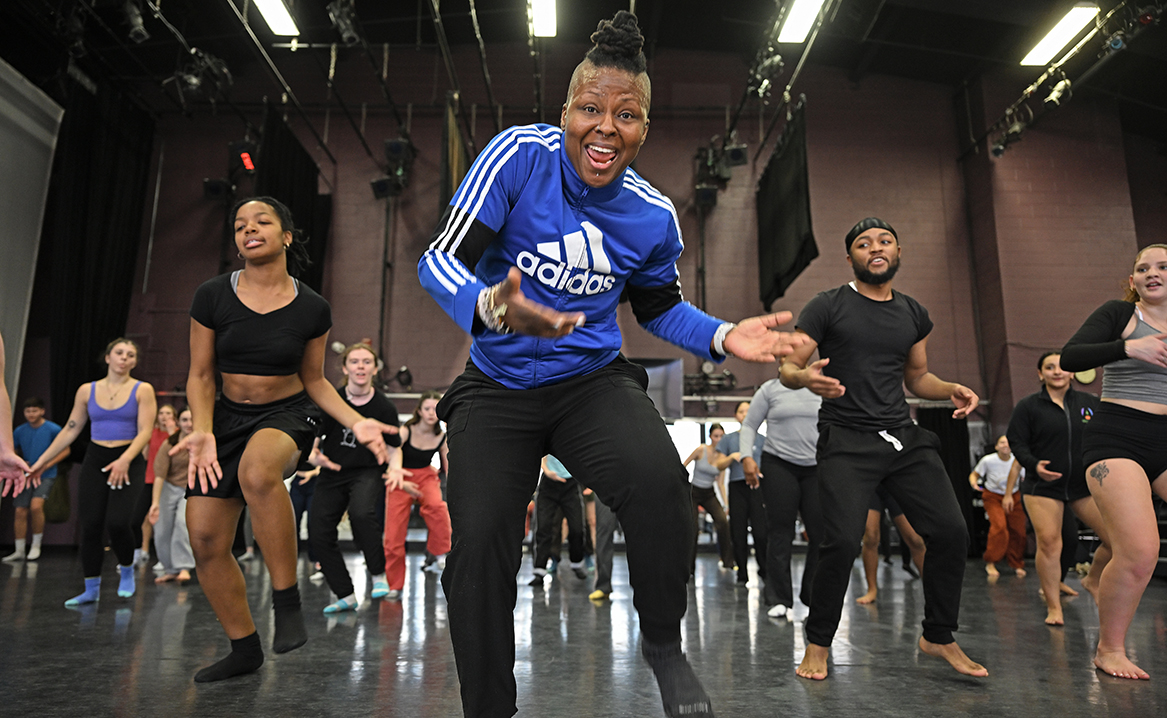
Professor David Dorfman ’84, founder of the influential modern dance troupe and Conn’s company-in-residence David Dorfman Dance, said that’s particularly important for Connecticut College, a leader in dance education since the 1940s.
“We have been working avidly on an anti-racist curriculum that centers African diasporic dance as a source of not only so much of the movement experienced in all dance today, but as the cultural underpinnings of the art form we love so much,” he said. “The summit was absolutely transformative for our students in and around our incredible dance department here at Conn.”
Zoe Zitner ’24, a dance and psychology double major from Washington, D.C., agreed. “African dance is the foundation of so much and we don’t usually think about that,” she reflected. “Everything has a root. As an artist, knowing and feeling that history is important.”
The summit was made possible by the Dayton Artist-in-Residence Program, which enables students to encounter and learn from artists and performers who are not typically accessible in an academic setting, giving them the opportunity to explore a wider variety of artistic approaches. In addition to Boggia, the summit was organized by Truth Hunter, former director of race and ethnicity programs at Conn and current doctoral student in the School of Educational Leadership at UConn; and Connecticut College Dance Professors Shani Collins and Rosemarie Roberts.
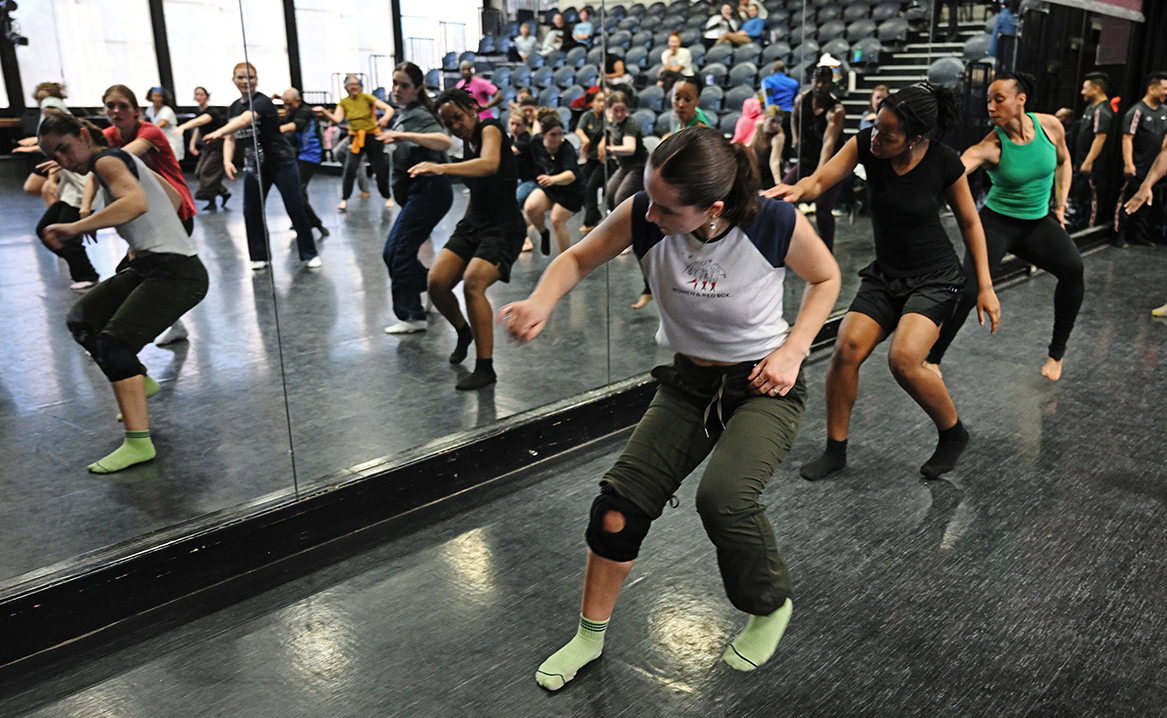
It was Hunter’s interview at Conn back in 2017 that first planted the seeds for the summit. She recalls that she mentioned her passion for African dance during the interview. After she was hired, Collins, who was part of the hiring committee, asked Hunter to co-teach a dance class with her. That led to the two taking a group of students on a trip to Senegal.
“It was a life-changing experience for us,” said Hunter.
Since then, the duo has continued to work together, including publishing a journal article in 2019 entitled “Advancing African Dance as a Practice of Freedom.” The summit marks the latest in their ongoing creative and academic collaborations.
In her welcome address, Collins called the summit “a magical moment” a long time in the making.
“We want to take a moment to think about how many people’s shoulders we’re standing on to be here today,” she said. “We are the manifestation of our ancestors’ dreams.”
